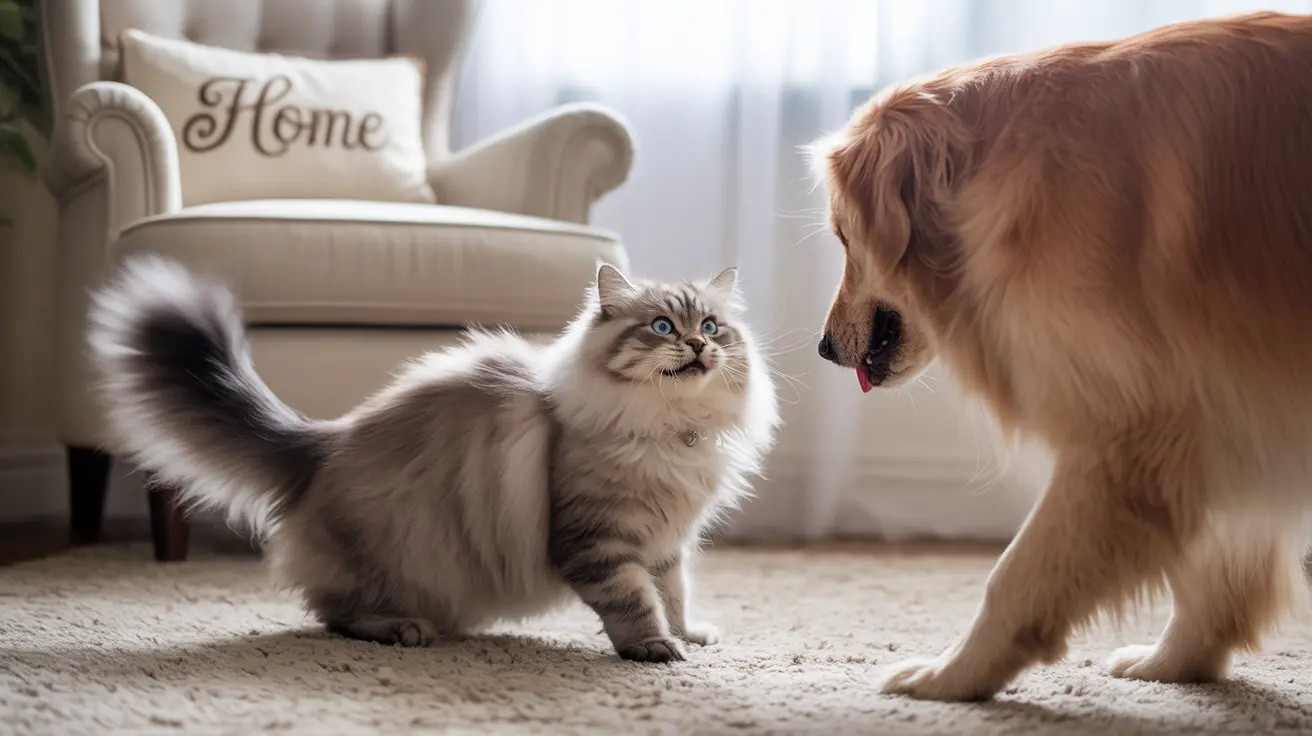When your typically friendly cat suddenly lets out a sharp hiss, it can be startling and concerning. This distinctive sound serves as a vital communication tool in your cat's behavioral repertoire, but what exactly does it mean? Let's explore the fascinating world of cat hissing and understand why our feline friends resort to this defensive vocalization.
Cat hissing is primarily a defensive behavior that occurs when cats feel threatened, uncomfortable, or need to establish boundaries. Think of it as your cat's way of saying "back off" before resorting to more aggressive actions. Understanding why cats hiss can help you better respond to your pet's needs and maintain a harmonious relationship.
The Science Behind Cat Hissing
When a cat hisses, they force air through their arched tongue while keeping their mouth open, creating that unmistakable sound that resembles a snake's warning hiss. This involuntary reflex, similar to a human's startled reaction, develops in kittens as early as two weeks of age during their critical socialization period.
The physical display accompanying a hiss is equally important. Your cat may arch their back, puff up their fur, and flatten their ears against their head - all designed to make them appear larger and more intimidating to potential threats.
Common Triggers for Cat Hissing
Cats may hiss for various reasons, all stemming from their need to communicate discomfort or establish boundaries. Common triggers include:
- Fear of unfamiliar people or animals
- Pain or physical discomfort
- Territorial disputes
- Maternal protection of kittens
- Overstimulation from petting
- Stress from environmental changes
- Reaction to sudden movements or loud noises
How to Respond When Your Cat Hisses
When your cat hisses, it's crucial to respond appropriately to prevent escalation. The most important step is to give them space immediately. Don't try to comfort or discipline them, as this could make the situation worse.
Instead, try these approaches:
- Remove the trigger if possible
- Provide a safe retreat space
- Maintain a calm, quiet environment
- Allow your cat to approach you when ready
- Consider consulting a veterinarian if hissing becomes frequent
Creating a Stress-Free Environment
Prevention is often better than cure when it comes to managing hissing behavior. Create an environment that minimizes stress triggers by:
- Providing multiple escape routes and hiding spots
- Maintaining consistent daily routines
- Setting up separate resource areas in multi-cat households
- Using calming pheromone products
- Ensuring regular veterinary check-ups
Frequently Asked Questions
Why do cats hiss at people they know?
Cats may hiss at familiar people when they feel overwhelmed, are in pain, or need personal space. This behavior doesn't necessarily indicate aggression but rather a need for boundaries or attention to potential health issues.
How can I reduce my cat's stress and anxiety to prevent hissing?
Create a predictable routine, provide multiple resources (litter boxes, food bowls, scratching posts), and ensure quiet spaces for retreat. Consider environmental enrichment and consult with your veterinarian about anxiety management options.
What does it mean if my cat is hissing at me while I'm petting them?
This usually indicates overstimulation or "petting aggression." Your cat has reached their threshold for physical contact and needs a break. Learn to recognize their early warning signs and respect their limits.
How should I handle a cat that hisses at me when I try to pick them up?
Some cats don't enjoy being picked up. Respect their preference and try alternative forms of interaction. If handling is necessary, approach slowly, speak softly, and consider using treats as positive reinforcement.
Why do cats hiss at each other, and how can I stop them from fighting?
Cats hiss at each other to establish boundaries and territory. Prevent fights by providing multiple resources, proper introductions for new cats, and separate spaces when needed. Consider consulting a feline behaviorist for persistent issues.
Understanding why cats hiss helps us become better pet parents and creates stronger bonds with our feline companions. Remember that hissing is a normal communication tool, and responding appropriately helps maintain trust and security in your relationship with your cat.






